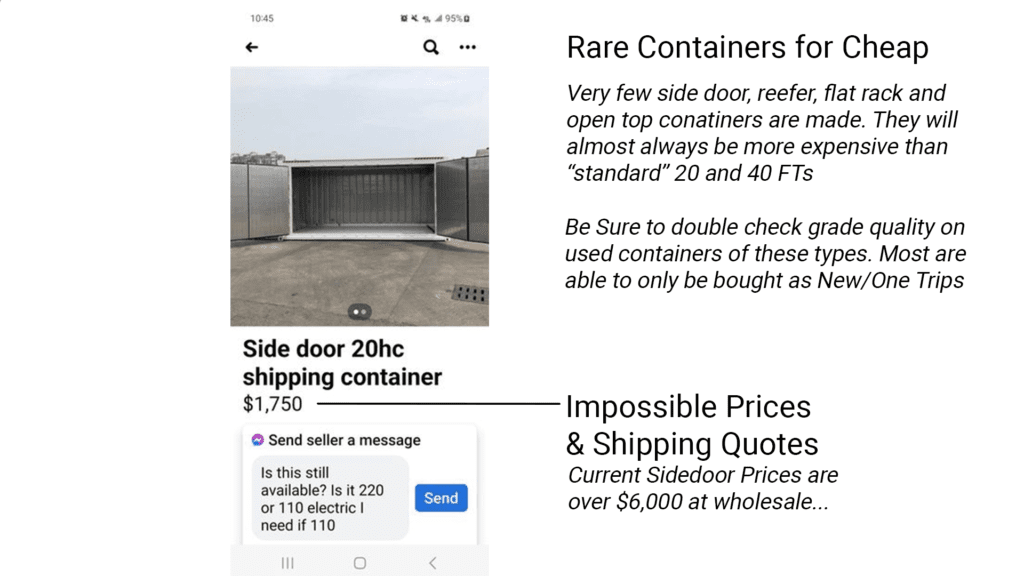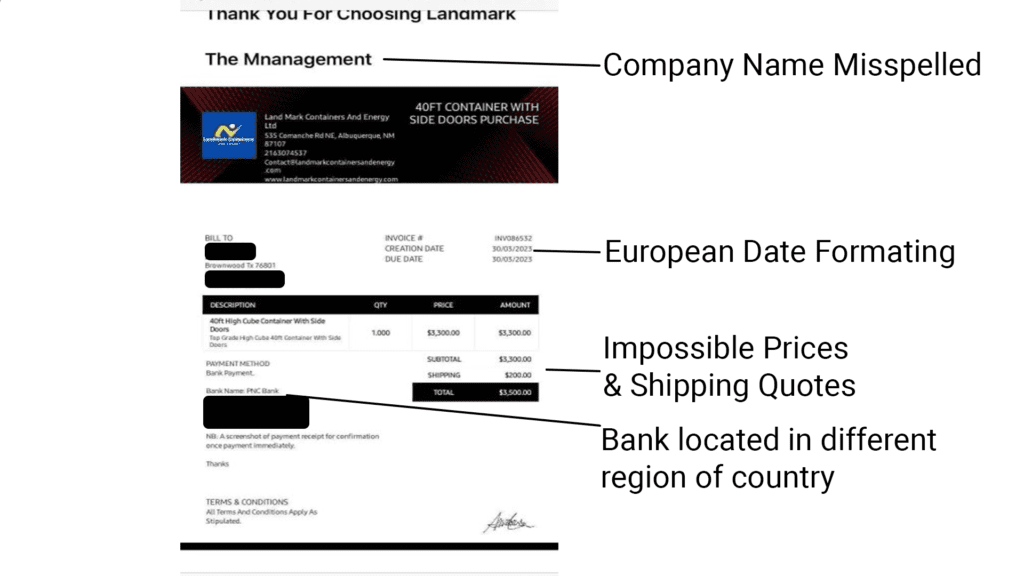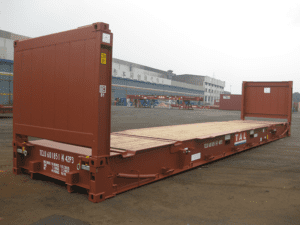A Comprehensive Guide for Smart Buyers
Purchasing used cargo containers can be a smart and cost-effective solution for businesses looking to expand storage or transport capabilities. However, there are some common scammer tactics that can make the process more challenging. At K3 Containers, we value our customers and want to ensure they have the best experience possible. In this blog post, we will outline several scams to watch out for when buying used cargo containers and provide an in-depth guide on how to avoid them and make informed decisions.
1. Unverifiable Sellers:
One common tactic scammers use is posing as a company selling cargo containers without providing any verifiable information. At K3 Containers, we make it easy for customers to find our contact information and reach us through multiple platforms. Be cautious of sellers who only offer one form of contact, such as a form on their website or those trying to conduct business through Facebook Marketplace. Additionally, look for red flags such as a lack of a physical address, a new domain registration, or a lack of online presence.
2. Suspiciously Low Prices:
If a price seems too good to be true, it probably is. Scammers often lure customers in with low prices that are significantly below the wholesale cost. These sellers may use incorrect photos or misrepresent the grade of the container. Always do your research and compare prices before making a purchase. Don’t be afraid to ask questions about the container’s history, including its previous usage, repairs, or modifications.
3. Hidden Fees:
At K3 Containers, we pride ourselves on our transparent pricing. There are no hidden fees, and we offer free delivery within our service zone. However, some companies may charge exorbitant shipping fees that can turn a seemingly good deal into an expensive purchase. Make sure to inquire about any additional fees or charges before committing to a purchase. Ask for a detailed breakdown of costs, including container modifications, taxes, or insurance, if applicable.
4. Inaccurate Grade Quality:
Scammers may provide inaccurate or falsified grade quality paperwork to deceive customers into thinking they are getting a better deal than they actually are. Always request and thoroughly examine the grade quality paperwork to ensure the container you are purchasing meets your expectations and requirements. Familiarize yourself with industry grading standards, such as IICL, Cargo Worthy, or As Is, so you know what to expect from each grade.
5. Misleading Date Formats
Some scammers may use European date formats to make it appear as though they are selling containers in the United States, such as Texas. Be cautious of sellers who use inconsistent date formats, as this could indicate that they are not based in the region they claim to be. Verify the seller’s location through their business registration, address, or by asking for references from past customers in the area.
6. Payment Security
Scammers may request payment methods that offer little to no protection for the buyer, such as wire transfers or cash payments. Make sure to use secure payment methods like credit cards, which provide more protection against fraud. If the seller insists on using a less secure payment method, consider it a red flag and proceed with caution.

How to Avoid Scams
1. Verify the Seller
Always research the company you are considering purchasing from. Look for reviews, testimonials, and contact information. A legitimate company will have a strong online presence and a track record of satisfied customers.
2. Inspect the Container
If possible, visit the location where the container is stored and inspect it in person. This will give you a better understanding of its condition and help you avoid any surprises. Look for signs of damage, rust, or structural issues that could impact its usability.
3. Request Documentation
Ask for any relevant documentation, such as proof of ownership, certification, and grade quality paperwork, to ensure the container meets your requirements and complies with industry standards. Verify that the documents provided match the container’s details and are genuine.
4. Get a Written Agreement
Before finalizing the purchase, make sure you have a written agreement outlining the terms, including the final price, delivery fees, and any other relevant details. This document should also include information about warranties, return policies, and any post-purchase support that may be available.
5. Check Date Formats
Pay close attention to the date formats used in any documentation or communication with the seller. Inconsistencies in date formats could indicate that the seller is not based in the region they claim to be, which may raise concerns about their legitimacy.
6. Seek Professional Advice
If you are unsure about any aspect of the purchasing process, consider consulting with an industry professional who can provide guidance and advice on making the best decision for your business needs. This could include a freight forwarder, a logistics company, or a cargo container inspection specialist.
7. Compare Multiple Quotes
Before making a decision, reach out to multiple suppliers to gather quotes and compare pricing, services, and container quality. This will help you get a better understanding of the market and ensure you are making an informed decision.
8. Trust Your Instincts
If something feels off or too good to be true during the purchasing process, trust your instincts and proceed with caution. It’s better to take your time and find a trustworthy seller than to rush into a purchase that may result in financial loss or a subpar container.

Conclusion
At K3 Containers, we are committed to providing our customers with high-quality cargo containers at fair and transparent prices. By being aware of the common scams and following the comprehensive tips outlined in this post, you can confidently navigate the used cargo container market and make informed decisions for your business needs. Remember, knowledge is power, and the more you know about the industry and potential scams, the better equipped you will be to make the right choice for your business.



